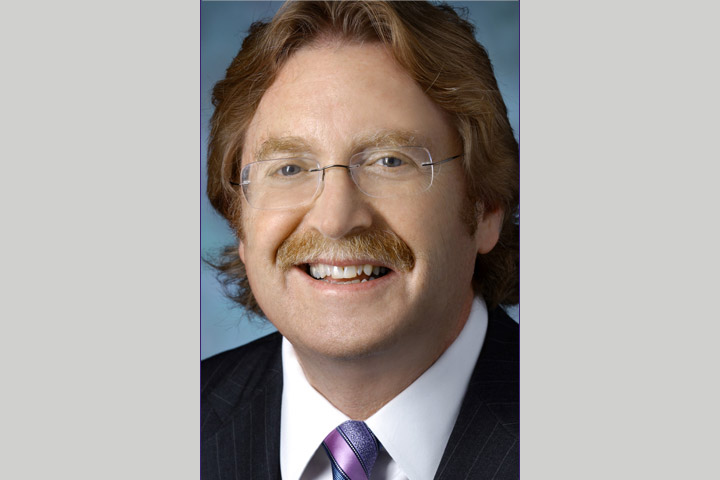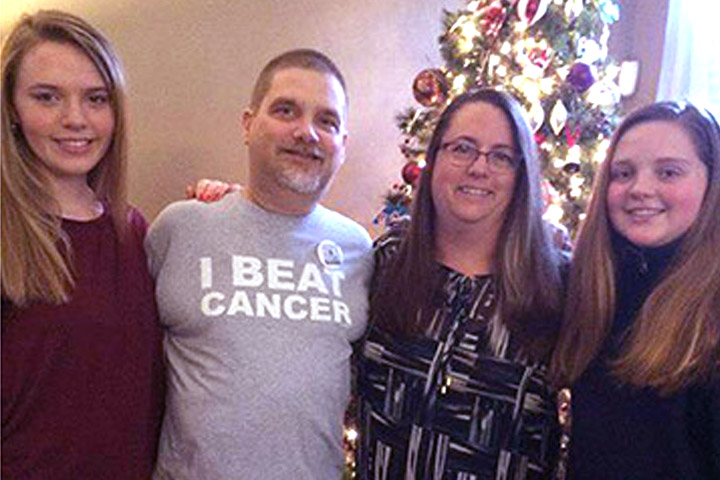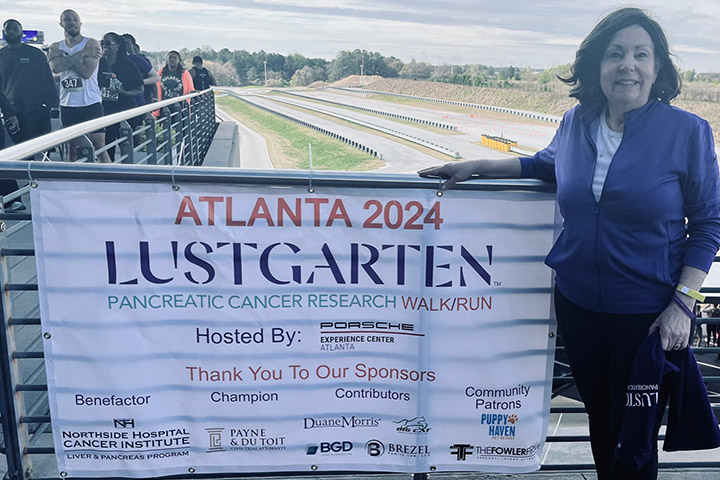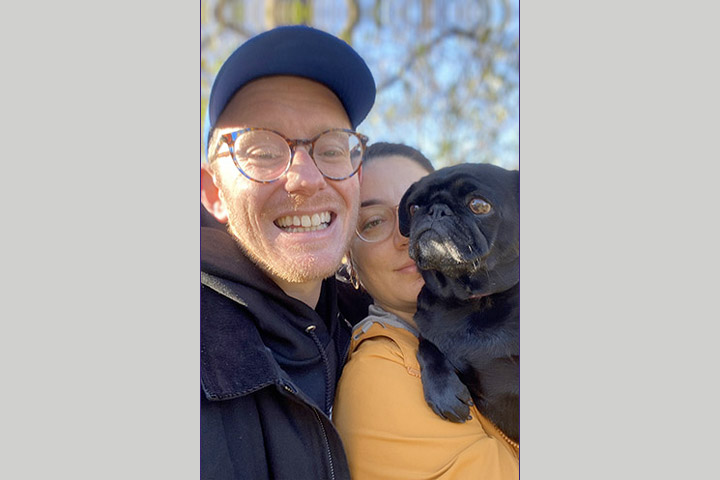Clinical Trials Offer Hope to Patients and Clinicians Seeking a Cure
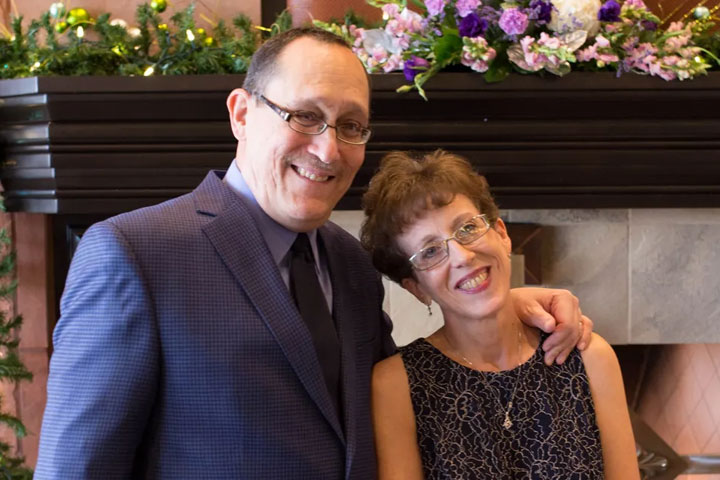
- Poor prognosis after attempted first Whipple procedure
- Clinical trial utilizing two older drugs and one new drug
- Underwent a successful Whipple procedure
- Clinical trials offer hope
In May 2014, I was diagnosed with stage IV pancreatic adenocarcinoma.
The first sign that there was something wrong came just five weeks earlier, when I started to experience symptoms of jaundice, which turned out to be caused by a small tumor at the head of my pancreas. Initially, the prognosis was stage II cancer, and a Whipple procedure was attempted. However, during the surgery a metastasis was identified in my liver, and the surgery was aborted.
The prognosis after surgery was not good. I was effectively told that I should get my affairs in order, and if I was lucky, perhaps I could be a one-year survivor. But I wasn’t ready to give in.
Choosing Clinical Trials
After getting two more opinions, I identified a clinical trial at a high-volume pancreatic cancer hospital called the Virginia G. Piper Cancer Center, a partnership of the Honor Health Network (Scottsdale Shea) and TGen (the Translational Genomics Research Institute, in Phoenix, AZ). This facility was less than 30 minutes from my house, and the treatment that I received there was remarkable.
The trial that I chose utilized two chemotherapy drugs that have been approved for the treatment of pancreatic cancer (gemcitabine and Abraxane) and a third drug (cisplatin) that is not currently approved for pancreatic cancer. The results were dramatic. After six treatments, the tumor growth had been halted, and my CA 19-9 marker had fallen by over 70 percent. After 12 treatments, a CT and PET scan revealed that the tumors were now difficult to detect. After the 15th and final treatment, the scan reported no detectable cancer. My CA 19-9 marker was in the low teens at the end of chemotherapy, and in January and February of 2015 it was below 10.
Chemotherapy ended in November 2014. After that, I had three more scans, which failed to identify any cancer. I even started to grow back some hair.
Unfortunately, pancreatic cancer is a pernicious disease and it tends to return with great frequency. In April 2015, my CA 19-9 was again on the move up and there was new evidence that the primary tumor was again active. For this reason I restarted chemotherapy, which I received for four months. After the four-month regimen I was again scanned and there was no active cancer demonstrated in the pancreas or elsewhere within my body. I then started a maintenance medication (Xeloda), which I took with no change in status until January 2016.
Exploratory Surgery Leads to Cancer Removal
The reemergence of evidence that the primary tumor was again active came in January 2016. It now appeared that the cancer would “outsmart the chemotherapy” and hence we began to consider other options.
While the primary tumor had become active on two occasions after the initial clinical trial, there was still no evidence that I had any metastatic disease after the trial was completed. For this reason, I decided to undergo exploratory surgery at the Mayo Clinic in Phoenix with Dr. Winston Hewitt as surgeon. If that exploratory surgery (which took 3 ½ hours as extreme caution was exercised) revealed no metastatic disease then the Whipple procedure would be performed. No metastasis was identified, the surgery was performed and the pathology report indicated clean margins. Once again, my desire to control and fight this disease had given me a shot at recovery.
High Level of Care with Clinical Trials
But this is only part of the story. The rest relates to the importance of participating in a clinical trial. I found that my participation in a clinical trial resulted in a high standard of care that I have never experienced before in my life. My first consultation with the oncologist, Dr. Erkut Borazanci, lasted over two hours. During that time, Dr. Borazanci described the characteristics of the disease, the success that the cancer center has had with the two approved chemotherapy drugs and why he felt that the addition of the third drug (cisplatin) would provide additional therapeutic benefits. Dr. Borazanci answered my questions and, most importantly, he gave me hope.
The clinical staff was also unbelievable. Although each infusion was a nine-hour process, there was virtually no wait time, and the drugs provided to counter nausea and fatigue allowed me to continue working part-time, while leading a somewhat normal life on chemotherapy.
Sure, there were bad days. But all in all, the horror of chemotherapy that has been projected in the media just did not exist for me. In addition to excellent treatment, the contributions that I and the other patients have made in this trial promise to be significant. That is rewarding. Very rarely in my life has there been such a win-win situation. Clinical trials offer hope, both to the patient and to the researchers seeking to deliver cures for this difficult disease. Please consider participation in a clinical trial if you are eligible to participate.
Philip passed away after living with stage IV pancreatic cancer for almost four years. His willingness to participate in clinical trials has added to the knowledge that will help other patients in the future. We offer our deep sympathy to his family.

